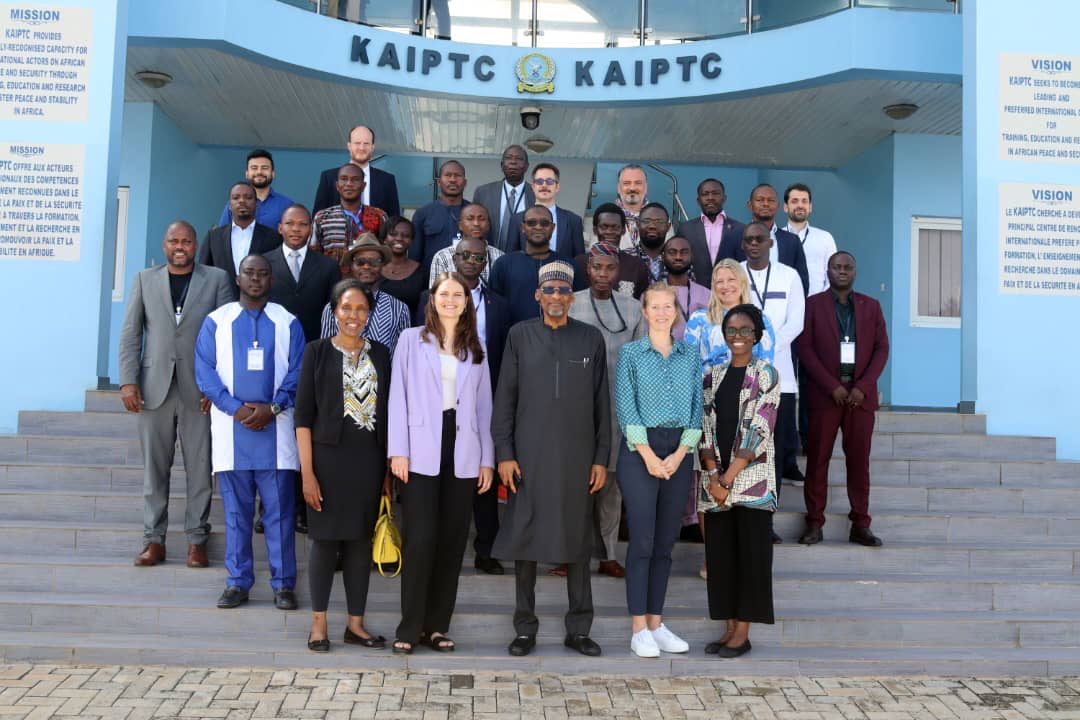ECOWAS Cyber Diplomacy Simulation: Strengthening Digital Security and Collaboration
08 Jun, 2024The ECOWAS Commission, in partnership with the German Federal Foreign Office, the European Union, the Deutsche Gesellschaft für Internationale Zusammenarbeit (GIZ), and the Diplo Foundation, organised a workshop on cyber diplomacy simulation. The event brought together representatives from ECOWAS Member States’ Ministries of Foreign Affairs to Accra, Ghana, from June 5th to 7th, 2024.
This simulation workshop on cyber diplomacy marks a pivotal continuation of the “Joint Platform for Advancing Cyber Security in West Africa” initiative. Its primary goal is to enhance understanding of critical cyber-related issues and processes as they contribute to international peace and security, while also strengthening participants’ cyber diplomacy capabilities. The simulation included exercises on thematic areas such as the application of international law in cyber space, norms, confidence-building measures and capacity building, all centred around the United Nations ‘Negotiations of the Open-Ended Working Group on security of and in the use of information and communications technologies 2021 – 2025’.
In his address to the workshop, Ambassador Baba Gana Wakil, the Resident Representative of ECOWAS in Ghana, spoke on behalf of Mr. Sédiko Douka, the ECOWAS Commissioner for Infrastructure, Energy, and Digitalisation. He emphasized the critical importance of cyber diplomacy in today’s interconnected world. The region is undergoing rapid digital transformation, and cyber threats transcend national borders, necessitating collaboration among ECOWAS Member States. He noted that cyber diplomacy enables diplomats to form alliances, share threat intelligence, and collectively strategize to protect against cyberattacks. Engaging in international dialogues allows ECOWAS to shape global cyber policies, ensuring a secure and equitable digital future. In conclusion, he stated that by embracing cyber diplomacy, ECOWAS reaffirms its commitment to safeguarding nations, promoting economic interests, and fostering global cooperation.
H.E. Sivine Jansen, Deputy Head of Mission at the German Embassy representing the German Ambassador to the Republic of Ghana, emphasized that as cybersecurity challenges grow increasingly complex, diplomats’ negotiating skills and knowledge of cybersecurity issues need continuous updating to meet the realities of today’s world. This involves reflecting real-world dynamics and underscoring the importance of cyber diplomacy for peace and security. She indicated that the workshop aimed to bridge gaps, build trust, and empower diplomats to shape the emerging regional cybersecurity agenda, including at the global level. Participants were encouraged to become multipliers of cyber diplomacy, sharing knowledge with national colleagues and regional counterparts. With cyber and digital issues gaining prominence in foreign affairs agendas, the training equips diplomats to play a significant role in addressing cybersecurity challenges. She highlighted the need to unite to enhance cyber capabilities, as West Africa aims to make valuable contributions to global cybersecurity discussions.
The simulation exercises were led by Mr. Ljupčo Gjorgjinski, Senior Fellow for Science and Technology Diplomacy with the Diplo Foundation, and former Chair of the Group of Governmental Experts (GGE) on Lethal Autonomous Weapons (LAWS) formed under the Convention on Certain Conventional Weapons (CCW).
The simulation exercise concluded with participants encouraged to demonstrate a united effort in addressing cybersecurity challenges, paving the way for a more secure and interconnected ECOWAS region.


















